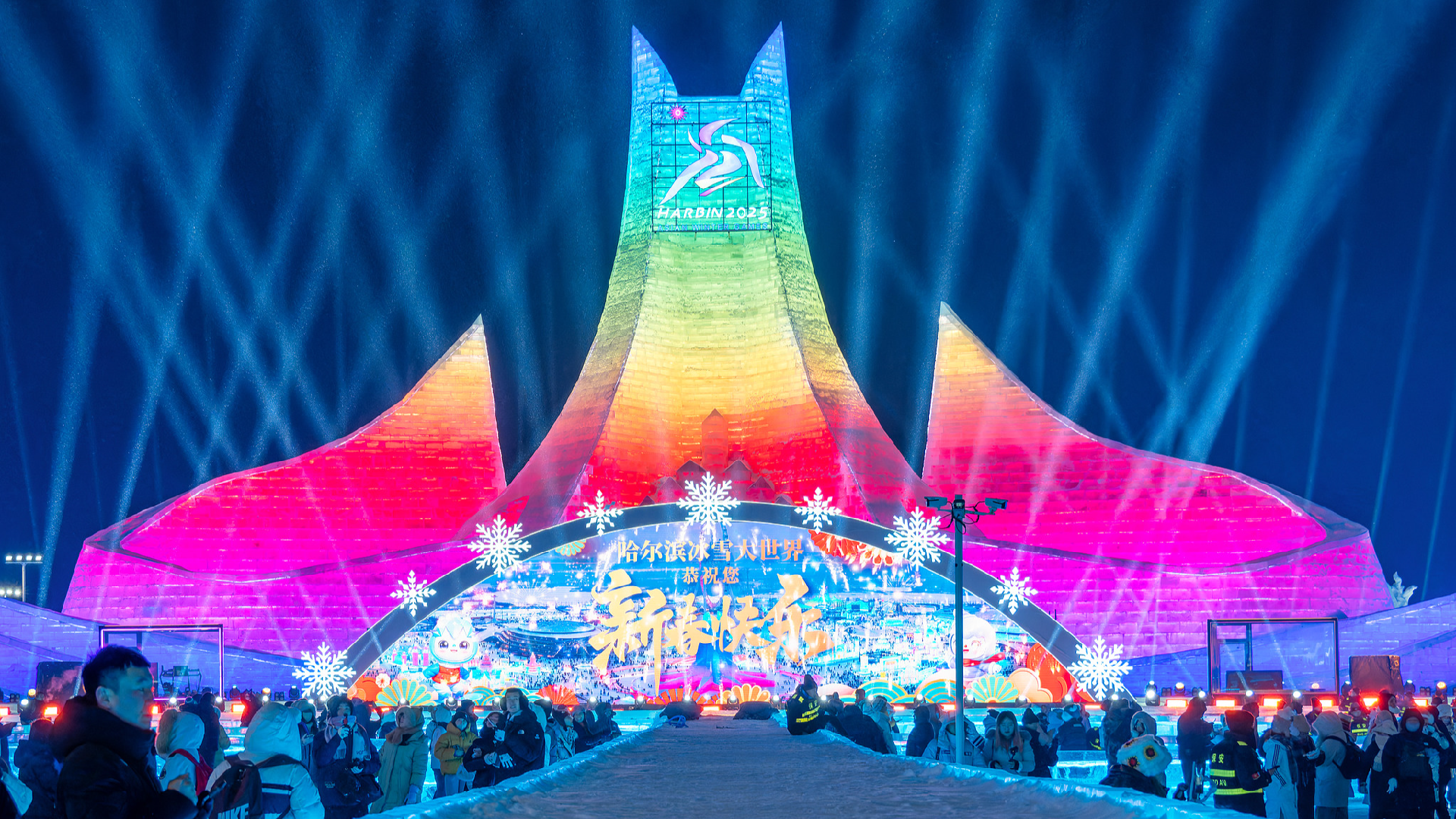China's Ice and Snow Economy Fueled by Asian Winter Games
The excitement generated by the 2022 Beijing Winter Games to the Asian Winter Games in Harbin has ignited a passion for ice and snow throughout the country, bringing renewed energy to winter sports globally.

Known as China's "Ice City," Harbin is famous for its stunning ice sculptures and winter celebrations, which draw millions of visitors each year.
The Harbin Municipal Culture and Tourism Bureau reports a significant increase in visitors to the city's ice and snow attractions. Since the launch of Harbin Ice and Snow World, tourist arrivals have risen by 21.3 percent compared to previous years.
In 2024, Harbin achieved a record 179 million visitors, generating tourism revenue of 231.42 billion yuan — both figures reflecting growth of over 30 percent from the year before. Between December 2024 and February 2025, visitor numbers are projected to increase by 15 percent. Since early February, bookings for domestic flights to Harbin have surged more than 20 percent, with hotel reservations climbing nearly 60 percent.
A key attraction this season has been the Harbin Ice-Snow World, recognized by Guinness World Records as the largest ice and snow theme park in the world. This year, it features elaborate ice sculptures representing iconic landmarks from 42 countries and three regions of the Olympic Council of Asia. Since its reopening 47 days ago for the 2024-2025 winter season, the park has seen over 2.7 million visits, including a peak of more than 100,000 visitors in a single day on February 1.
China's ice and snow market presents vast opportunities, and the government has actively encouraged its growth. The China Ice and Snow Tourism Development Report indicates that the 2024-2025 season could attract 520 million participants in ice and snow leisure tourism, generating over 630 billion yuan in revenue. Projections suggest that by 2027, China's ice and snow economy will reach 1.2 trillion yuan, with expectations of hitting 1.5 trillion yuan by 2030.
The Asian Winter Games have been instrumental in expediting this growth, enhancing tourism and promoting expansion in interconnected sectors such as hospitality, transportation, and retail. Harbin's successful hosting of the Games sets a benchmark for other cities aiming to utilize their natural resources for economic advantage.
As Harbin celebrates the Asian Winter Games, it will continue to boost China's expanding consumer market. The city's transformation of its cold climate into a vibrant economic force exemplifies the power of innovation and strategic foresight.
Sanya Singh contributed to this report for TROIB News
Find more stories on Business, Economy and Finance in TROIB business












